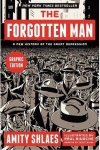 In conjunction with the release of their new graphic novel, comic writer Chuck Dixon and artist Paul Rivoche penned a Wall Street Journal op-ed piece decrying what they describe as "modern comics’ descent into political correctness, moral ambiguity and leftist ideology." In a piece titled "How Liberalism Became Kryptonite for Superman," the pair give a history of comics in which the elimination of the Comics Code Authority is tied to a new, informal "...code of political correctness and moral ambiguity."
In conjunction with the release of their new graphic novel, comic writer Chuck Dixon and artist Paul Rivoche penned a Wall Street Journal op-ed piece decrying what they describe as "modern comics’ descent into political correctness, moral ambiguity and leftist ideology." In a piece titled "How Liberalism Became Kryptonite for Superman," the pair give a history of comics in which the elimination of the Comics Code Authority is tied to a new, informal "...code of political correctness and moral ambiguity." They tie their history to some personal markers; Dixon says he began getting less work in the 1990s after he "...expressed the opinion that a frank story line about AIDS was not right for comics marketed to children."
The piece cites changes to Batman and Superman, in particular the scene in Action Comics #900 in which Superman says, "Truth, Justice, and the American way—it’s not enough any more" (see "Supes Citizenship Flap Spreads Like Wildfire") as examples of what they see as a recent political slant in comics. They also point to graphic novels of Studs Terkel’s Working, Howard Zinn’s A People’s History of American Empire, and graphic novel biographies of Che Guevara and Emma Goldman as demonstration that, "The political-correctness problem stretches beyond traditional comics into graphic novels."
Dixon and Rivoche note graphic novels that are not left or right (using Maus and Persepolis as examples) and others that swing right, but argue that "...the general message most modern comics send is ...head left."
They wrap up by urging "...conservatives, free-marketeers and yes, free-speech liberals" to join them, and point to their just-released graphic novel version of The Forgotten Man, a conservative history of the Great Depression, as one step in that direction. "It’s time to take back comics," they say.
Whether or not the op-ed piece inspires more books like The Forgotten Man, it does give the book prominent exposure to precisely the audience that is most likely to buy it, Wall Street Journal readers interested in a right-leaning take on historical events.


